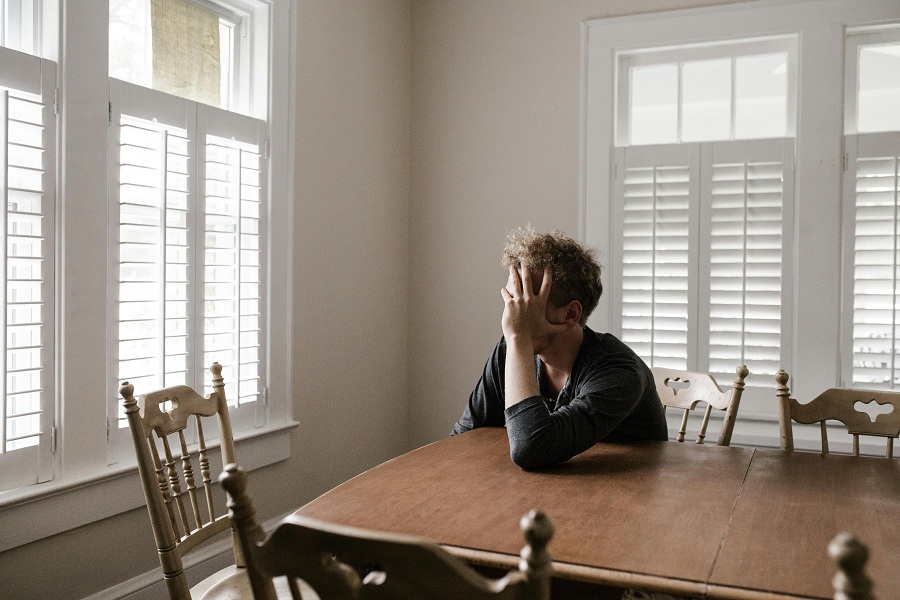
Published :
Updated :

For years, seeking mental health support meant scheduling an appointment, navigating traffic, and sitting face-to-face with a therapist. However, now, a laptop or smartphone is often all it takes to initiate the healing process.
As our lives become more digitally connected, so too has mental healthcare. From video chats to texting, online counselling is changing the way people seek assistance and changing the way we manage stress, anxiety, depression, and more.
While virtual therapy platforms existed before the COVID-19 pandemic, lockdowns and social distancing measures accelerated their rapid growth. With in-person sessions on hold, both therapists and patients turned to Zoom, WhatsApp, and dedicated apps to continue therapy.
"Virtual therapy isn't just a backup plan anymore," says Dr. Sabrina Rahman, a Dhaka-based clinical psychologist with over 12 years of experience in this field. "Some of my clients have found it easier to open up from the comfort of their own homes. It feels less formal, and that helps reduce the fear of judgment," she adds.
"Before 2020, I had maybe one or two online clients per month - usually people living abroad," she says. "But during the COVID-19 pandemic, everything shifted online, and I began receiving calls from people in Khulna, Rajshahi, and even remote villages in Sylhet. They were all looking for help, and online therapy made it possible," she shares.
She continues to offer virtual sessions to this day and estimates that nearly half of her current clients prefer online appointments. For many, it simply fits better into their daily lives.
There are several easily accessible online counselling services available in the country that cater to several mental health conditions. One of them is Kaan Pete Roi, a suicide prevention and emotional support helpline that provides tele-counseling free and without any appointments, bringing mental health care to the doorstep of all.
Another valuable resource is Moner Bondhu, which offers round-the-clock online counselling along with various self-care tools and resources to help individuals manage their well-being.
These services collectively play a crucial role in expanding mental health care accessibility nationwide.
Online therapy platforms, such as BetterHelp, Talkspace, and Amwell, have experienced significant international growth.
These services offer access to licensed professionals and provide flexible options, including live chats and weekly check-ins. This makes therapy more accessible and convenient for working individuals, students, and overall people with busy schedules.
Why virtual therapy works
Virtual therapy has gained popularity due to its numerous advantages. To begin with, it is very convenient, as clients can book sessions suited to their schedule and avoid traffic or a commute, which is highly beneficial in busy cities like Dhaka.
Md Sakin Ahmed Turzo studies at a university situated far north of Dhaka. Sometimes, he has to take sessions from there. He says, "It is convenient; no one knows that I am taking sessions other than my family. So I feel protected. Also, I can avoid the stress of going out while living in the capital by taking virtual sessions."
It also helps maintain confidentiality, which is much needed. In a society in which mental illness is stigmatised, internet counselling allows one to access treatment discreetly without the risk of being observed entering a clinic or running into acquaintances.
Affordability is a crucial consideration when seeking virtual counselling, as many therapists offer sliding fee scales or discounted rates for students and those on limited incomes.
Lastly, the comfort of being at home makes clients feel more secure and at ease during sessions, encouraging openness whether they want to talk, cry, or be silent without feeling judged.
Dr Rahman mentions that many of her younger clients, especially university students, have said they wouldn't have sought help if it weren't for the privacy and convenience of online sessions.
"One client told me she would lie in bed with her blanket during therapy because it made her feel protected," Dr. Rahman shares. "If that's what helps her open up, then it's valid. The setting of therapy has changed, but the goal remains the same, and that is to heal."
Not without challenges
Of course, virtual therapy isn't perfect. Poor internet connections, distractions at home, or a lack of privacy can disrupt the process.
For individuals experiencing severe mental illness or trauma or those in crises, in-person care may still be more appropriate. "There are times when body language and physical presence matter a lot," says Dr. Rahman. "Virtual sessions may miss those subtle cues - a slight tremble in the hand, a change in breathing - are important for diagnosis."
One of the most significant impacts of virtual therapy is its gradual reduction of the stigma associated with it. When help is just a click away, it's easier to take that first step.
The future of therapy is flexible
As we move forward, it's likely that hybrid therapy-a mix of virtual and in-person sessions-will become the norm for treatment. But one thing is clear digital therapy isn't going away in the future.
It's reshaping the landscape of mental health support and providing a lifeline for those who may have otherwise suffered in silence.
If someone you know is struggling with mental health, online therapy might be a gentle first step toward healing.
As more individuals try online therapy, mental healthcare becomes more accessible, which serves to erase the stigma of mental health and promote open conversation about difficulties.
ummehabiba24244@gmail.com


 For all latest news, follow The Financial Express Google News channel.
For all latest news, follow The Financial Express Google News channel.